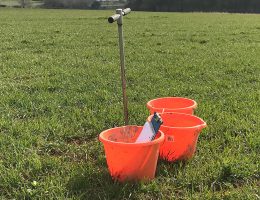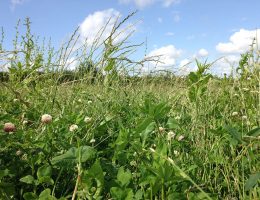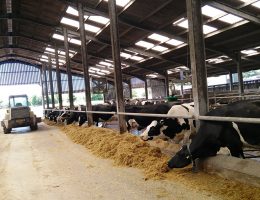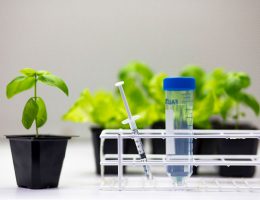Growing grapes in the UK is difficult. Spring is a vital time for vines because it’s when flowering happens and so is a good indicator of the coming season’s yield. But our cool, wet springs – and generally unpredictable weather – often mean low yields and hard work making a profit.
This is not just bad news for ripening grapes; cool, wet springs hamper growth, but cool, wet summers allow fungal and bacterial pathogens, like Botrytis, to flourish, so expensive disease-management also impacts profit margins. The last 30 years’ average yield in the UK has been 3.3 tonnes of grapes per hectare; the break-even figure is estimated at around 3.8 tonnes (the average in Champagne is 10 tonnes).
This project aimed to develop a cloche system to offset these factors; it was undertaken in collaboration with SmartVit, a viticulture consulting business based in Truro, Cornwall.
We worked with three Cornish vineyards with differing micro-climates to test the cloche system, measuring its impact on grape-growth and infection by Botrytis. In 2018, this involved setting up trials to assess whether: 1. cloche can improve yield generally, 2. vines under cloche suffer reduced disease from Botrytis, and 3. cloche interacts with Botrytis biocontrol agents Prestop and Serenade.
The subsequent two years confirmed why it’s so hard to grow grapes in Cornwall. Our vineyards suffered the destruction of cloche by spring storms, the complete loss of harvests to spring frosts, and large-scale outbreaks of slugs and snails. In light of these developments we changed the scope of our trials.
Overall, both cloche and mowing were shown to have desirable impacts on pest management and vine growth. Grapes ripened faster, were bigger, and had higher sugar content, though total overall yield was not significantly different to open treatments.
Evidence of biocontrol’s efficacy against botrytis and molluscs was more equivocal. Sites differed significantly in disease response, and botrytis was substantially more damaging under cloche at one site than the other. Neither Prestop nor Serenade significantly impacted yield or Botrytis prevalence, though Prestop appears to have limited between-berry spread in infected bunches. Over the course of the project we developed strong ties with Cornish growers, ties which will continue to be important in developing future projects in Cornwall.
To find out more please email Alex Huke at a.r.huke@exeter.ac.uk or call us on 01326 255844.





















